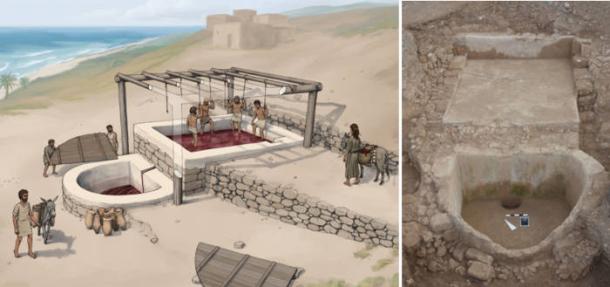🔴 Website 👉 https://u-s-news.com/
Telegram 👉 https://t.me/usnewscom_channel
Revolutionary new research from Tell el-Burak in Lebanon has revealed that Phoenician builders developed sophisticated hydraulic lime plaster technology around 2,700 years ago, predating widespread Roman use by several centuries. This groundbreaking discovery rewrites our understanding of ancient construction innovation and highlights the Phoenicians’ role as technological pioneers in the Mediterranean world.
Scientists conducting an interdisciplinary study at the coastal site of Tell el-Burak, located 6 miles (9km) south of Sidon in southern Lebanon, have uncovered compelling evidence of ancient eco-technology that demonstrates remarkable innovation through recycling. The research, published in Scientific Reports, reveals how Phoenician craftsmen deliberately incorporated crushed ceramic fragments into lime plaster to create hydraulic mortar capable of hardening even in wet conditions.
The discovery centers on three plastered installations dating to approximately 725-600 BC, including a remarkably well-preserved wine press that served as the centerpiece of agricultural operations at the site. The wine press consisted of a rectangular treading basin measuring 3.20 × 3.50 meters, connected by a channel to a semi-circular vat capable of holding approximately 4,500 liters where grape juice underwent initial fermentation explains a Greek Reporter article.

